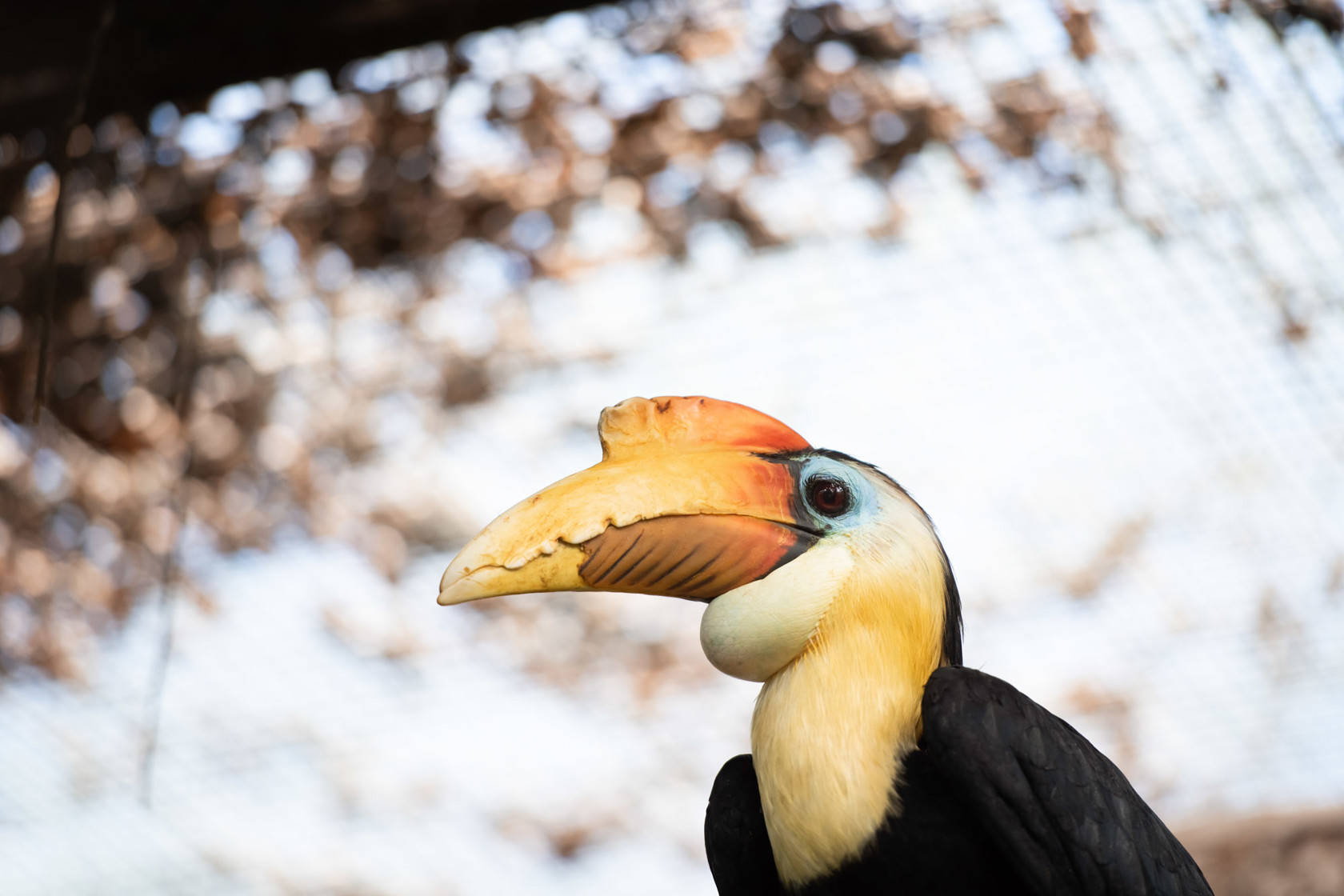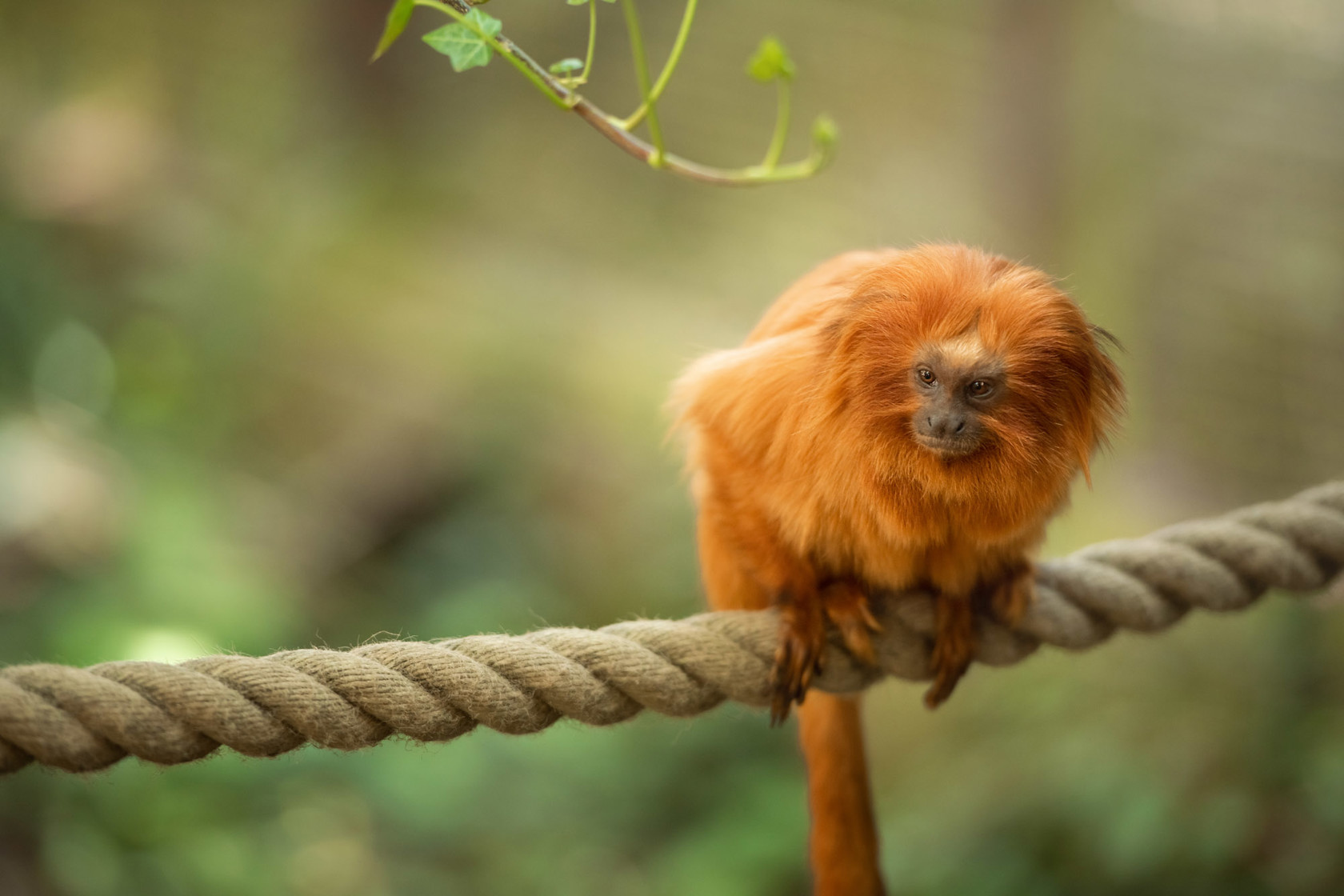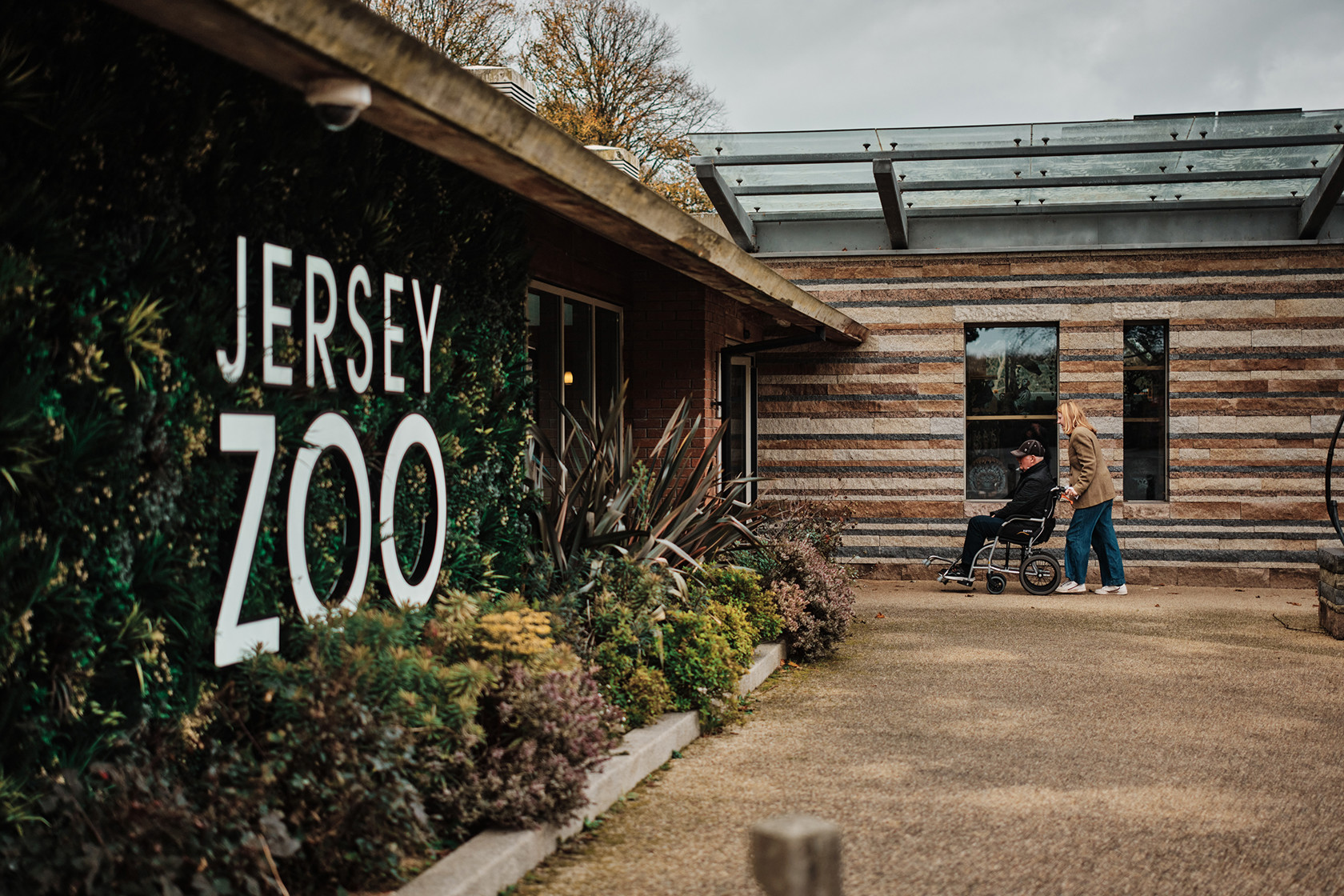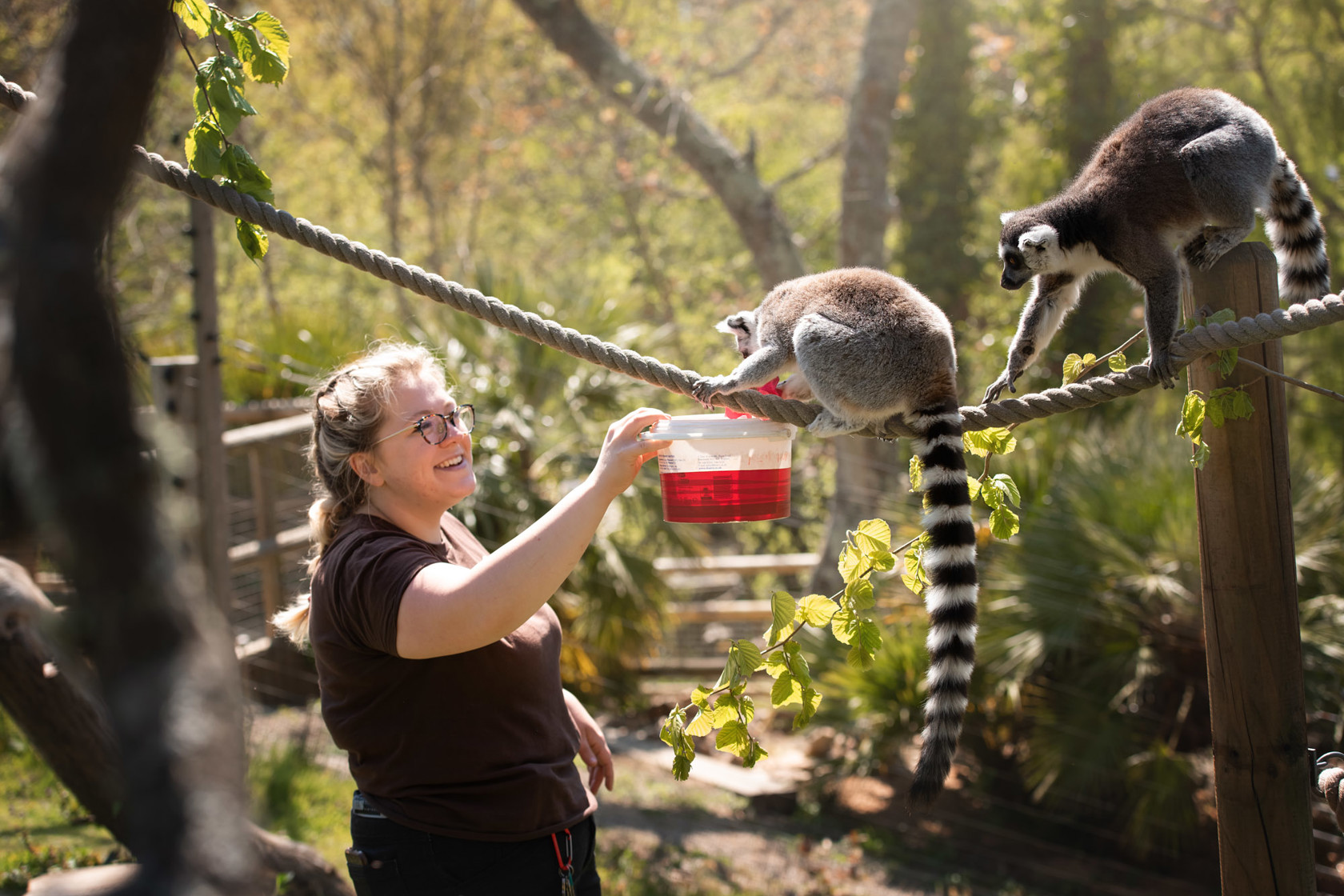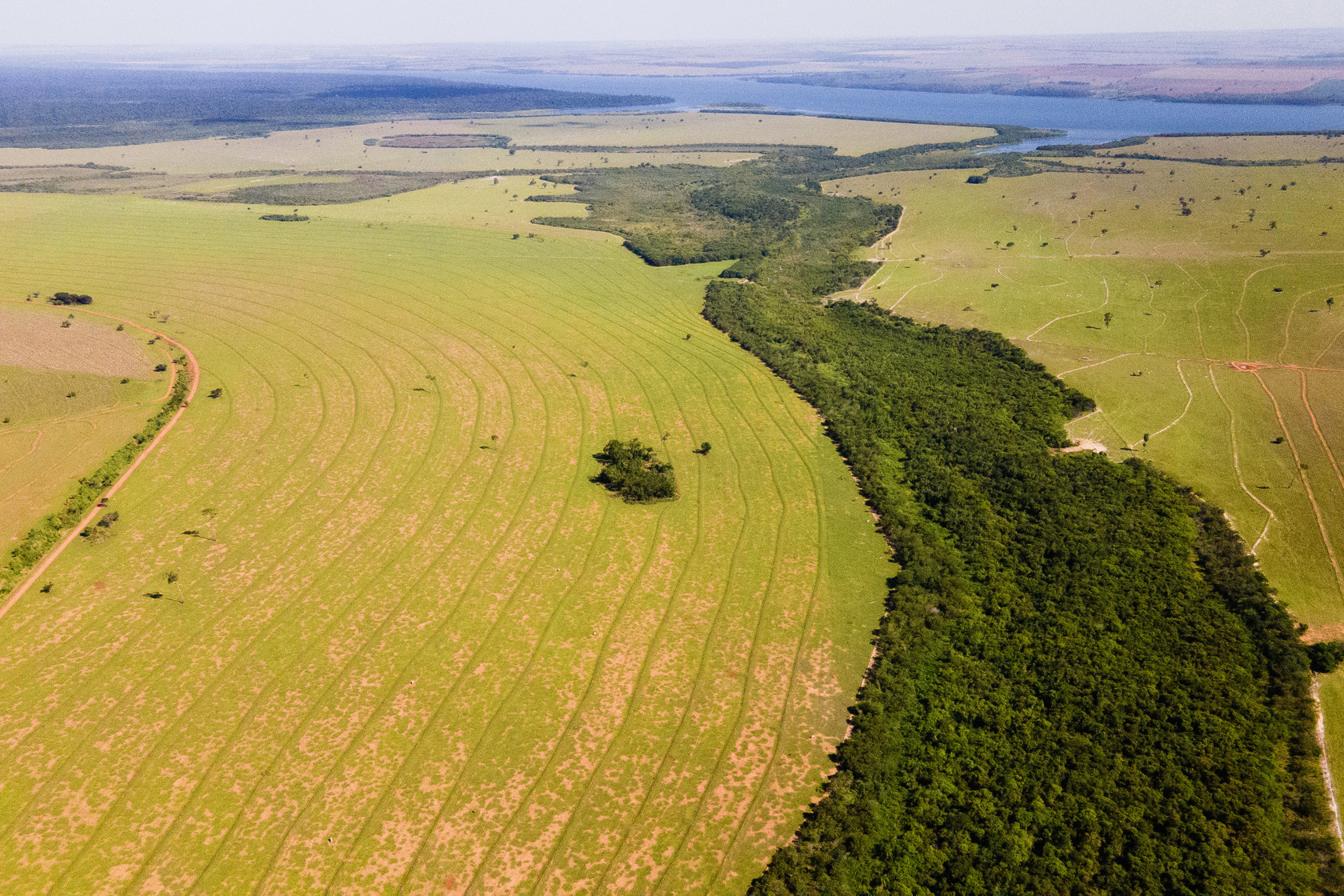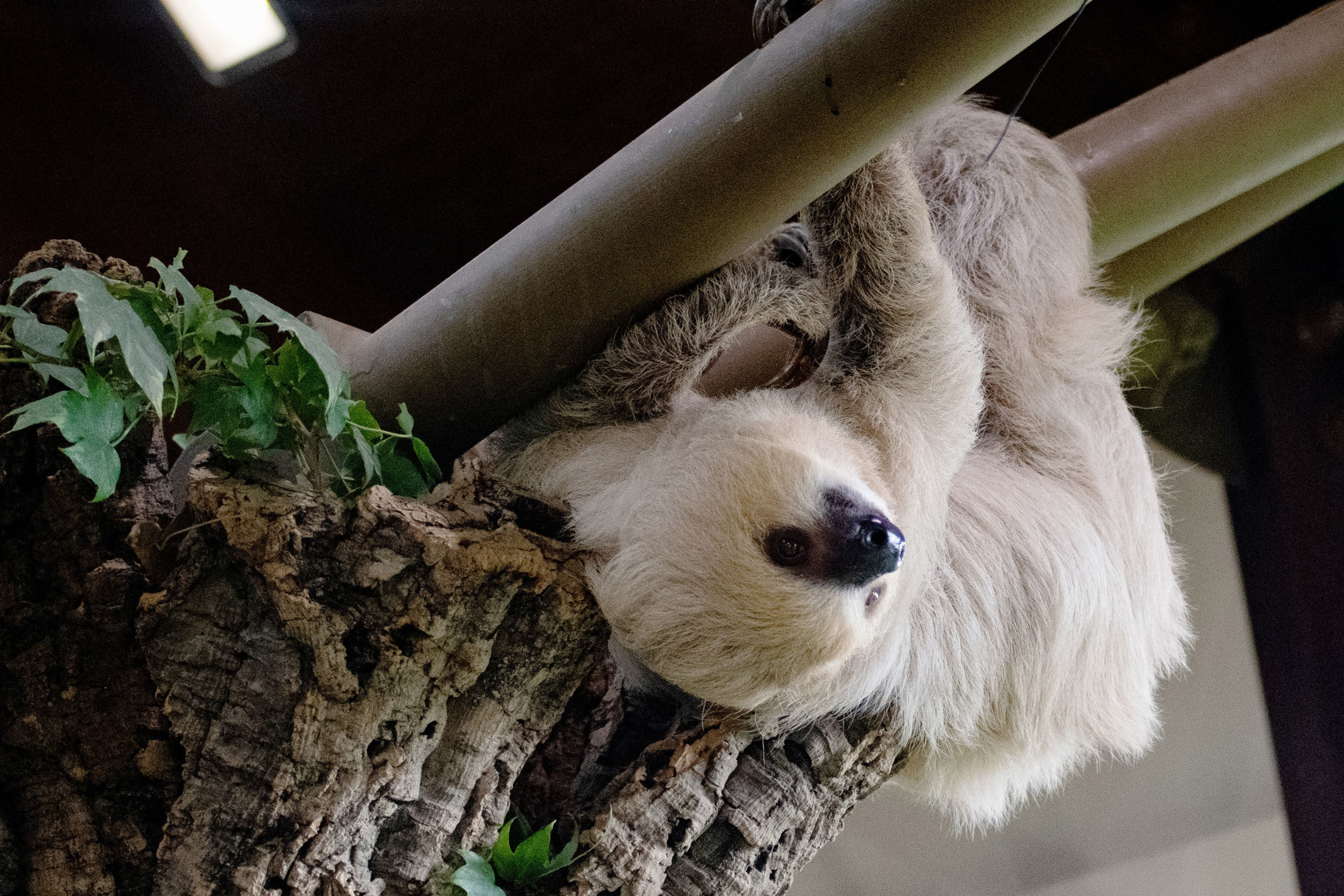Meet the largest otters in the world
Found in South America, giant otters are the largest species of otter and the largest member of the mustelid family, which includes weasels, mink and badgers. With thick fur to keep their skin warm and dry, webbed feet, and a long, powerful tail, giant otters are speedy swimmers and well evolved for life in the water. These social animals live in family groups of up to 20 individuals. As you might hear, they're very chatty! In fact, giant otters have 15 different vocalisations. They also communicate through smell by leaving urine, faeces and scents from their glands to mark their territories.
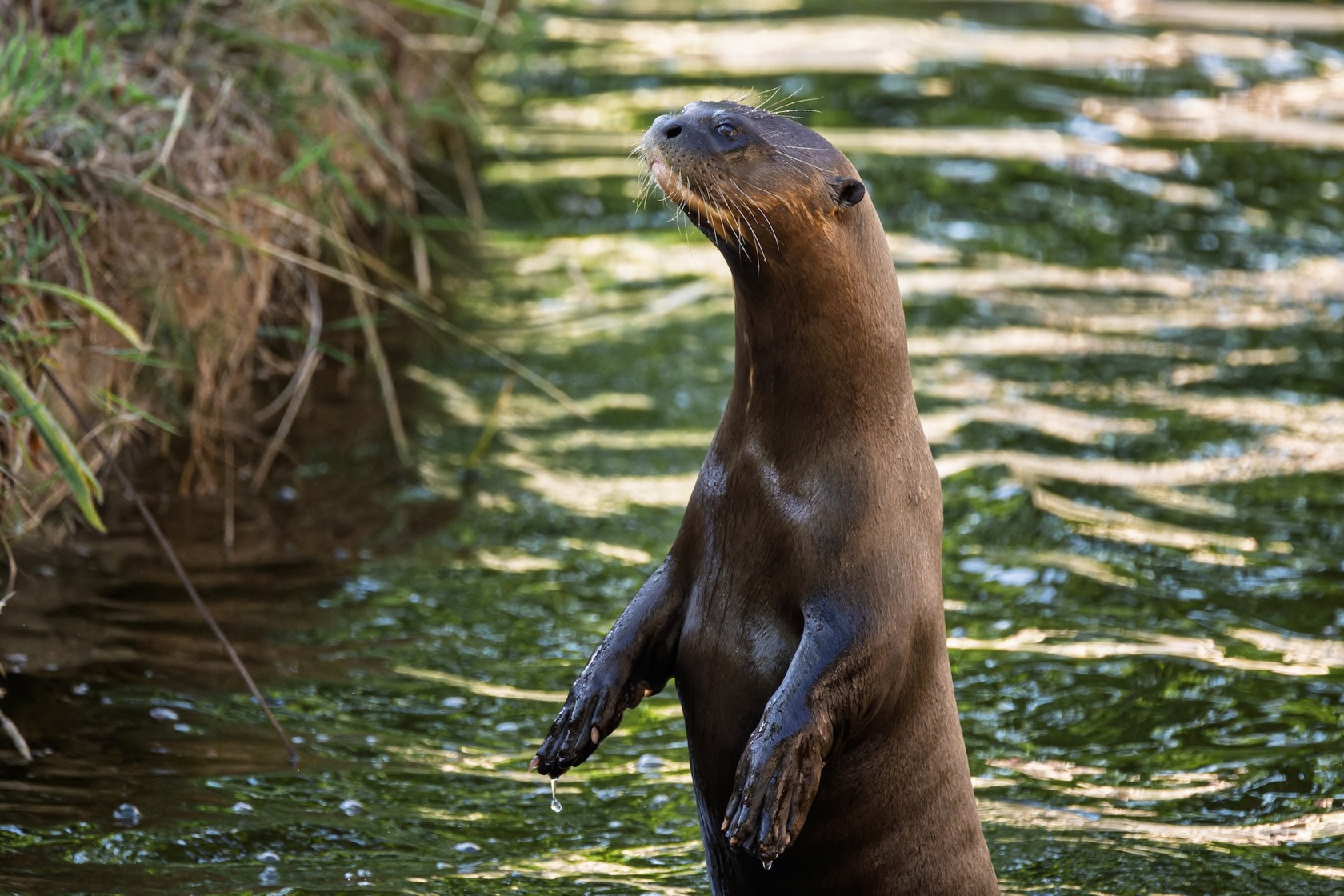
1.6m
average body length
5kg
food eaten a day
22-28kg
average adult weight
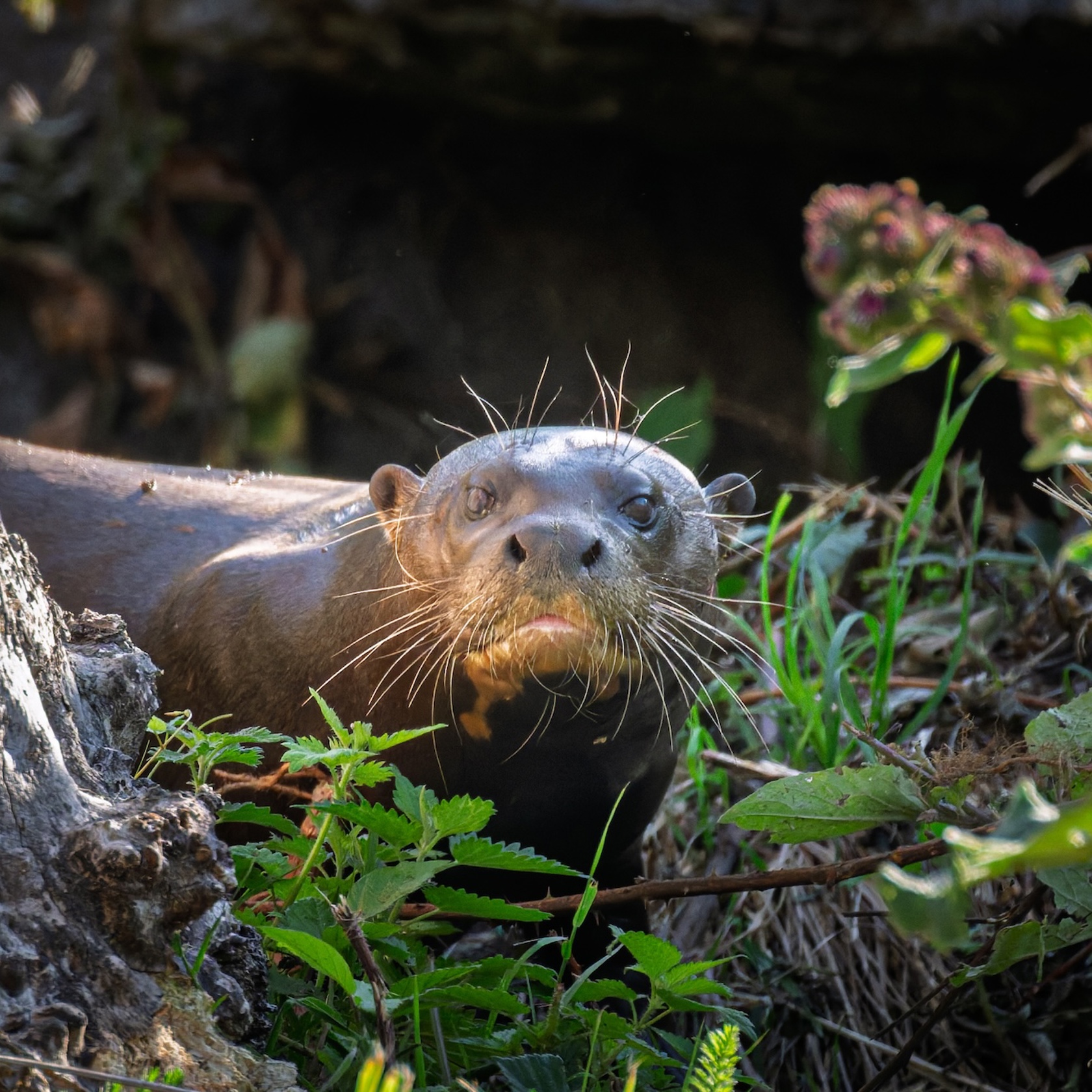
Protecting the world’s otters
Classified at Endangered on the IUCN Red List, giant otters are under threat from habitat loss due to logging and dam building, a lack of prey due to overfishing, water pollution from mining and farming, and being hunted illegally for their fur and meat.
There are 13 species of otter, one of which is native to the UK. Sadly, many of them are endangered. You can help protect them and their habitat by:
-
Keeping rubbish out of rivers and oceans
-
Being mindful of perfume or sunscreen on your skin before swimming in natural water
-
Saving water at home by taking shorter showers or collecting rainwater
Help us care for our giant otters

